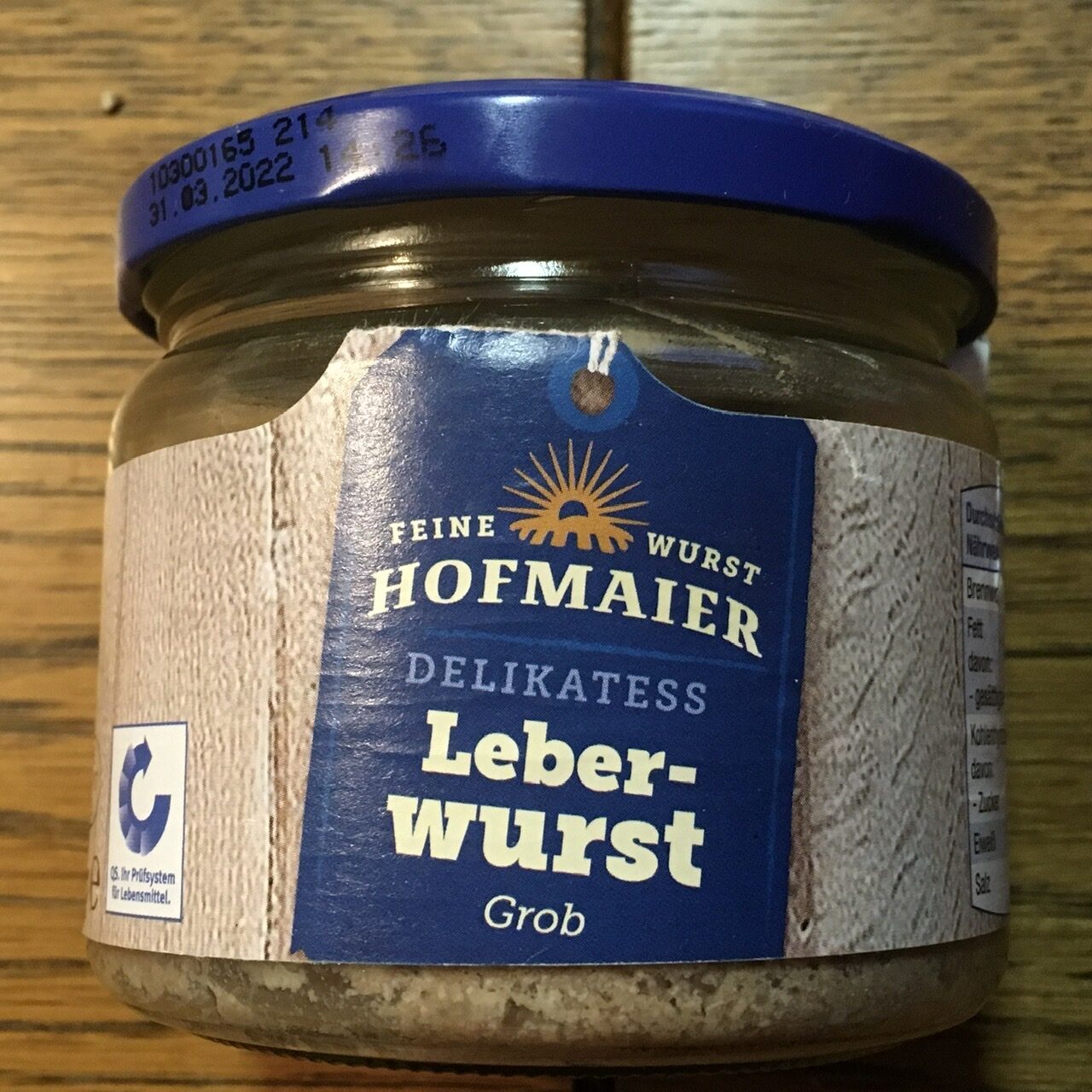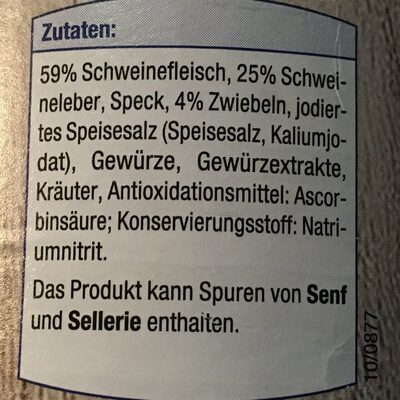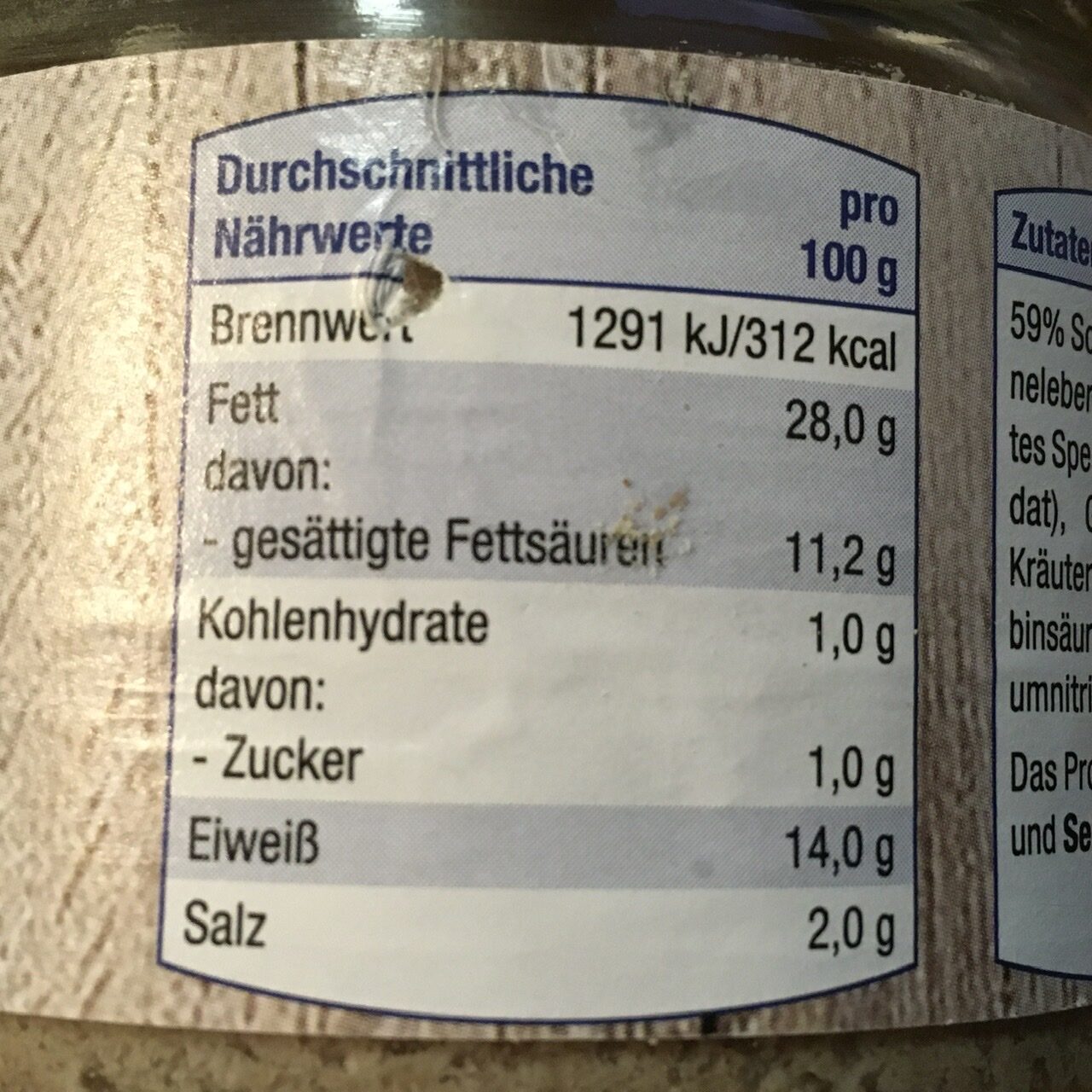Leberwurst - Hofmaier - 250g
This product page is not complete. You can help to complete it by editing it and adding more data from the photos we have, or by taking more photos using the app for Android or iPhone/iPad. Thank you!
×
Barcode: 42288015
Quantity: 250g
Packaging: Metal, Glass, Jar, Lid
Brands: Hofmaier
Categories: Meats and their products, Meats, Prepared meats, Sausages, Liver sausages
Labels, certifications, awards:
QS certification mark
Traceability code: DE NI-11167 EG
Stores: Netto Marken-Discount
Matching with your preferences
Environment
Carbon footprint
Packaging
Transportation
Report a problem
Data sources
Product added on by prepperapp
Last edit of product page on by prepperapp.
Product page also edited by emiljunker, kiliweb, packbot, raturina, yuka.sY2b0xO6T85zoF3NwEKvlhRECNfzmhzeJUXjlVWb4_KDd6K4aOF_5a3bDqs, yuka.sY2b0xO6T85zoF3NwEKvllAbdILOmQLrGjvgx2qX5MbSILfCf-lrvbP9Iqg.










